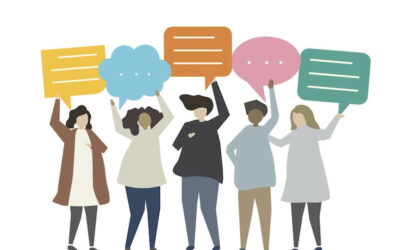
- Buying Textbooks: Strategies for Buying and Returning Books
- Selling Textbooks: Why Aren’t My Books Worth More at BuyBack?
- Selling Books Back Online: Avoid Getting Burned
1. Buying Textbooks
Strategies for Buying and Returning Books
Selected by instructors, textbooks provide college students the information and resources they need to do well in their courses. However, many students come to college unprepared for their expense, which can average $817 a year, according to a 2003-2004 College Board report.
Smart shopping strategies can have a big impact on your wallet when shopping for textbooks. The National Association of College Stores (NACS) offers the following suggestions:
- Know your store’s refund policy, especially the deadlines. This way, you won’t be disappointed if you need to return items to the store if you drop a class.
- Keep your receipts. Most stores require receipts for returns.
- Don’t write in your books until you’re certain you’ll be keeping them. Most stores will not offer full credit for books that have been marked.
- Buy “used” books whenever possible, which can save you 25% off the cost of a new textbook. College stores strive to provide as many used textbooks as possible, but they often sell-out quickly.
- Be cautious when making educational purchases online. The exact items you need may not be available right away causing you to fall behind in your studies. Also, don’t forget to calculate shipping expenses into the total cost of the textbook.
- If you have a choice between buying a textbook by itself, or the same text packaged with a study guide or software package, make sure you need both parts. Packages can be a great value and maximize learning when properly used. However, they are often non-returnable once opened.
2. Selling Textbooks
Why Aren’t My Textbooks Worth More at Buyback?
It’s almost the end of another term and time for students to think about what they’ll do with those pricey textbooks. Unfortunately, many students will be unhappy to learn that the value of their textbook has depreciated significantly during the term, or is not eligible for buyback. The National Association of College Stores offers some answers to students’ most frequently asked questions about textbook buyback:
Why are some books worth more?
The value of a used book depends on whether or not that particular book has been assigned by a professor for the following term. If the bookstore has received an order from the professor for the book, the bookstore will generally buy back used copies in good condition for about 50% of the retail price. If the book has not been assigned on campus for the next term, the bookstore will check with wholesale companies to determine the national market value – often a much smaller percentage of the original retail price.
Why did my friend get more than I did for the same book?
Timing plays a huge role in students getting the best prices during buyback. A late book order from an instructor can negatively impact the value of a book. Also, the national market value for a particular book fluctuates based on the changing supply and demand for that book nationwide.
Why won’t the store buy back my books?
Stores and wholesalers typically don’t buy back books once their quota is reached. But there are other reasons why your book may not be bought back as well: it’s possible your textbook is not being used anywhere next term, particularly if it is highly specialized or customized; the publisher may be replacing the book with a new, updated edition next term; the book may be part of a required package of items that cannot be sold separately; or, your copy many not be salable due to its poor condition.
Why don’t I get more for my books?
College stores provide used book as a less expensive alternative for students, generally pricing them 25% less than new books. Because providing used books is a labor intensive process that creates additional costs for stores, paying more for them at buyback would raise the retail price of the book when it is resold.
Why don’t stores sell used books for the same price they were bought back?
Stores must add an amount to the price of all merchandise – including used books – to help cover normal operating expenses. These include: staff wages and benefits; mortgage or rent payments; utilities; insurance and taxes; checkout systems; shelving; security; cleaning and repairs; supplies; and other expenses.
3. Selling Books Back Online
Avoid Getting Burned
As the term ends, you may consider selling your used books back to an online bookseller, or listing them for sale on an online book exchange. If so, there are several things you should be aware of. The National Association of College Stores cautions students to carefully read buyback website’s FAQs for selling back books beforehand. The fine print may have some specifications and restrictions, including:
- Shipping Costs: You may be required to ship the book at your expense, eating into your buyback returns.
- Cash or Credit? Some online sites may pay you with a credit redeemable only toward the purchase of books from their site.
- Getting it Back: If you ship a book to a web site for buyback and it’s rejected, some may not send it back unless you’re willing to pay for return shipping.
- Pricing: Beware of websites that claim to pay substantially higher percentages for used books. Some online buyers greatly exaggerate how much they’re willing to pay.
- Fees: Some online textbook exchanges charge a nonrefundable fee to post books for sale, or take a percentage of the sale price.
About NACS
Headquartered in Oberlin, Ohio, the National Association of College Stores (NACS) is the professional trade association representing the $11 billion collegiate retailing industry. NACS represents more than 3,300 collegiate retailers and about 1,200 associate members who supply books and other products to college stores. NACS member stores daily serve the majority of America’s 15.8 million college students while supporting the academic missions of higher education institutions everywhere. Additional information on NACS can be found online at www.nacs.org.



